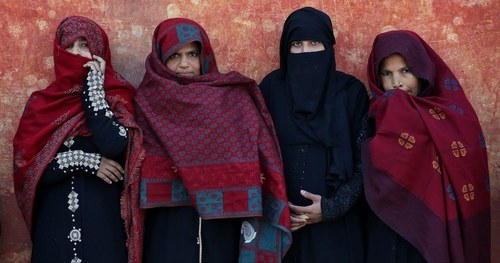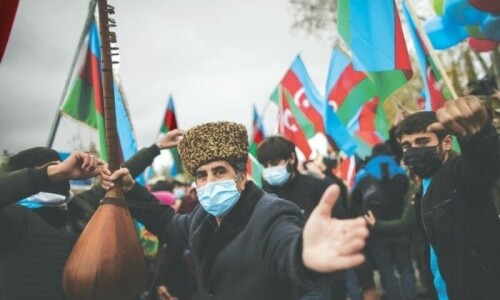IT has been called the world’s largest election. Next door in India, a seven-phase vote to elect the Lok Sabha got under way on April 19. It will go on for many more weeks, not culminating until May 19, when the long process of counting the votes cast will begin.
As has been visible in the days leading up to the election, Prime Minister Narendra Modi and his Bharatiya Janata Party (BJP) have deployed every flavour of divisive rhetoric to whet the appetite of their Hindu nationalist base. Such has been the vile desperation that even a near war with Pakistan was brought into the mix, the attendant claims of the killing of militants and the downing of Pakistani F-16 planes all to be admitted as fabrications, as perceived.
While crossing over into Pakistani territory and attempting to ‘bomb’ an area was a tactic that was seen in the weeks preceding the election, the crackdown on Muslims living in India itself has been a fixture of the Modi administration. Leaders in Modi’s party have made it a point to demonise Muslims at every opportunity they get.
Entire movements in India have been constructed on the policy of Muslim exclusion.
Those who plan and execute attacks against non-Muslims have not simply been tolerated but, on the contrary, anointed. Sadhvi Pragya, a known Hindutva extremist, has been given a party ticket for these elections. Entire movements have, in fact, been constructed on the policy of Muslim exclusion. According to a recent article in Scroll India, studies have shown that even upper-middle-class Muslims are not safe. A high percentage of their children report being harassed in school, with questions like ‘Do you support Al Qaeda?’ and ‘Are your parents Taliban?’
Read: Modi defends extremist woman candidate
The practice of denying rental housing to Muslims, which came to light years ago, used to be an embarrassment for most Indians. Not anymore. Such denials, along with exclusion from public spaces in schools and colleges and universities, have created an extremely restrictive environment in which the powerful appear to be proud of excluding Muslims and would likely welcome thoroughly strong-arm tactics that would restrict Muslims to certain living spaces in certain areas of Indian cities and towns. The narrowing of the Indian mind, the evisceration of Indian democracy, it seems, is here to stay, regardless of what the outcome of the ongoing elections may be.
The BJP is still worried about the outcome of the elections, however. One new proposal that again delivers hatred and exclusion in yet another way is a system that would expedite citizenship proceedings of persecuted minorities living in other countries but it pointedly and particularly leaves out Muslims.
Hindus, Buddhists, Jains and other minorities who have fled their homelands owing to persecution and violence, and have taken refuge in India, will all be eligible for this sort of fast-track citizenship; everyone, that is, except the Muslims.
In his article on the issue, scholar Sadanand Dhume honed in on the law as being particularly indicative of the unquenchable hatred of Muslims that festers in the country. The Muslim community in India, it seems, is looked upon by extremist minds with such hate that it can never be identified as persecuted — on the contrary, the hard-liners living in the Modi era, look upon the Muslims as persecutors. The image of India as a Hindu nation in the eyes of Modi and his supporters cannot include Muslims, and discrimination and persecution may well be geared to eventually driving out India’s Muslims.
Pakistan has not been able to do much to stop the march of hatred right across the border. The recent episode that left India and Pakistan teetering on the brink of war, averted by happenstance, fortunately, revealed just how far the Islamophobia has progressed. Even the Indian media, once insurance against fascist takeovers, has kowtowed to the Modi government, with recent reports showing dissenting journalists confronted with reprisals and revenge if they do not toe the BJP party line.
With this sort of toxic atmosphere hanging over the subcontinent, Pakistan has an opportunity to show leadership on the issue of persecuted Muslims. Not only should the government finally resolve the issue of stateless Muslims who still languish in camps in Bangladesh, it should consider policies that can offer Pakistani citizenship to persecuted Muslims in the region. This would likely include Rohingya Muslims and others who have been fleeing violence.
It could also possibly include Sri Lankan Muslims who are at risk of violence at the hands of Sinhalese Buddhists following Sunday’s Easter attacks (and the fact that they are being blamed on hard-line Islamist groups, despite the absence of concrete evidence).
Pakistan has taken in thousands of Afghan refugees before, but now it can show its respect and empathy for the suffering by taking in these other Muslims.
Arms races between India and Pakistan are common, both countries having always been eager to stockpile weapons and aircraft and all sorts of military technology. It may be time for a new competition. If India has turned cruel and exclusionary, made hatred a staple and coercion its practice, Pakistan can rise above the fray and show the world and especially the region its respect and commitment to providing assistance and refuge to the world’s persecuted.
Just as Pakistan followed the dictates of the Geneva Conventions and released captured Indian pilot Abhinandan, so too should it open its arms and its borders to those who have suffered injustice and now exclusion at the hands of states that are fuelled by hatred and who have elevated the exclusion of Muslims as a primary tenet of their governing platform. In a world pivoted on hatred, Pakistan can be different; Pakistan is different and it is time to show the world just how different.
The writer is an attorney teaching constitutional law and political philosophy.
rafia.zakaria@gmail.com
Published in Dawn, April 24th, 2019















































